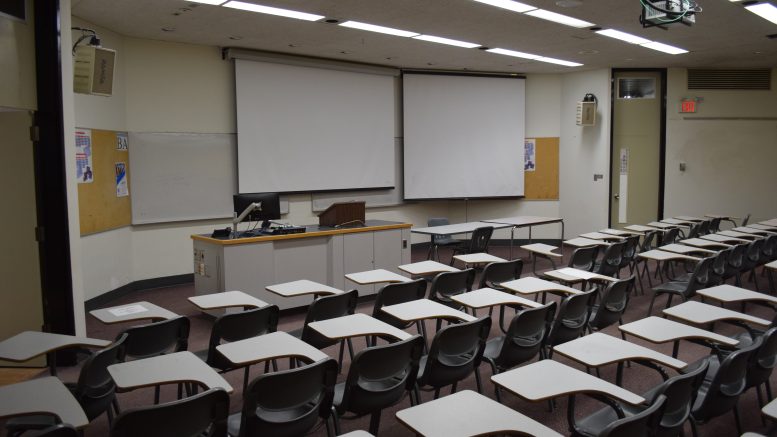I remember when I was first called a perfectionist. I sat across from my therapist with a confused expression. I was appalled, “how can I be a perfectionist? Nothing I do is ever perfect,” I said. She responded with a smirk. Then it clicked. That’s the point.
I had been struggling with procrastination in university. Assignments felt so overwhelming I would shut down entirely, avoiding them at all costs to prevent the intense anxiety. At one point, it got so bad I hit a mental wall. I sobbed to my partner at the time. I couldn’t finish the semester. It felt like the end of the world. I was going to fail. And if I failed, my life would be over.
I emailed my professors, and I emailed an academic advisor. Without handing in my final essays, I barely passed two classes and failed another. This came after getting an A average the previous year, something I felt incredibly proud of. It felt like a fall from grace, or rather, it revealed the dark reality that I am a failure, and I could only keep it at bay for so long. It’s precisely this harshness that perpetuates a cycle of harm. A loop that drove my problem further when the anecdote was self-kindness.
My professors were incredibly supportive, kind and understanding. One professor assured me that I am an intelligent person and a good student and that he hoped I would be back when I was ready. When I read that email, I cried again.
The pressure we feel as students can be intense. According to a meta-analysis published in the Psychological Bulletin, over the past 27 years, academic perfectionism has steadily increased, reflecting a broader shift toward high and often unattainable standards of achievement. Perfectionism in academia is not just about reaching goals and striving for excellence, which is positive and helps us stay motivated. Academic perfectionism is about the unrealistic expectations we set or feel others impose on us. It comes with an all-or-nothing tendency. It’s associated with harsh self-criticism, fear of failure and, of course, my specialty, procrastination. A publication by the Harvard Division of Continuing Education explains that those struggling with perfectionism also tend to procrastinate. If they cannot do it perfectly the first time, they’ll avoid the task in fear of repeated failure.
Those who experience academic perfectionism also present higher levels of fatigue, anxiety, depression and hostility per a publication in the International Journal of Environmental Research and Public Health. It adds that those who exhibit perfectionism have a greater likelihood of developing suicidal ideation.
This construct manifests in different forms: self-oriented perfectionism, where we push ourselves to impossible heights; other-oriented perfectionism, where we impose these standards on those around us; and socially prescribed perfectionism, where we believe others expect perfection from us. A study in Cognitive Therapy and Research suggests that high parental expectations and criticism can contribute to these tendencies. At the start of each year, we often plan to be organized, focused and successful, but these plans rarely accommodate our humanity.
The reality is that university comes with intense pressure that often turns academic success into a measure of self-worth.
However, I found strategies that helped me back into the “game” and excel: I learned to be kind to myself, set realistic expectations and prioritized self-care. I leaned on my logic: failure is a part of life, and I will be okay as life must go on. My final recommendation is to essentially stay healthy. Which includes eliminating negative self-talk and falling into a shame spiral.
And for the professors out there, you’re not off the hook either. The academic environment, focused on producing top achievers, creates high pressure, often pushing students towards burnout rather than success.
Recognizing and addressing academic perfectionism is crucial—not only for students themselves but also for educators and institutions. The most valuable thing professors did for me when I struggled was validate that my academic ability didn’t impact my worth as a student. I was given grace with extensions, offers of assistance and endless understanding. Knowing a professor is in your corner makes a world of difference.
And finally, the U of M has resources for anyone struggling with perfectionism. If you’re returning to school and feeling the pressure of academic perfectionism, contacting the Student Counselling Centre is a great idea. Find support from friends, family, peers and professionals too.
Having aspirational goals and wanting to achieve great things is not bad. But let’s check in and ensure it’s not coming at the expense of our well-being.


